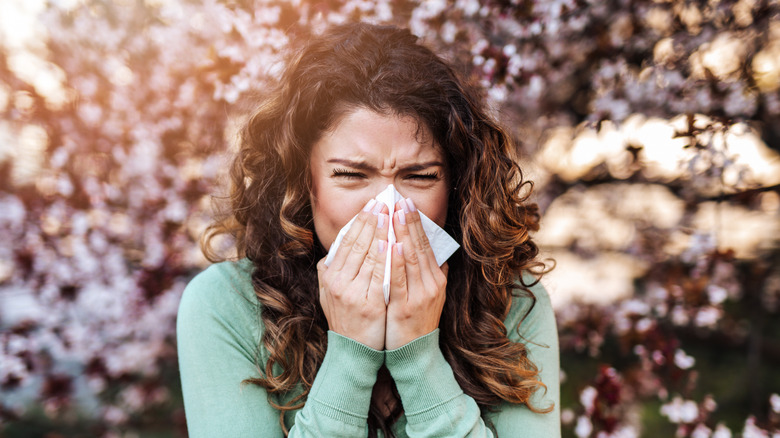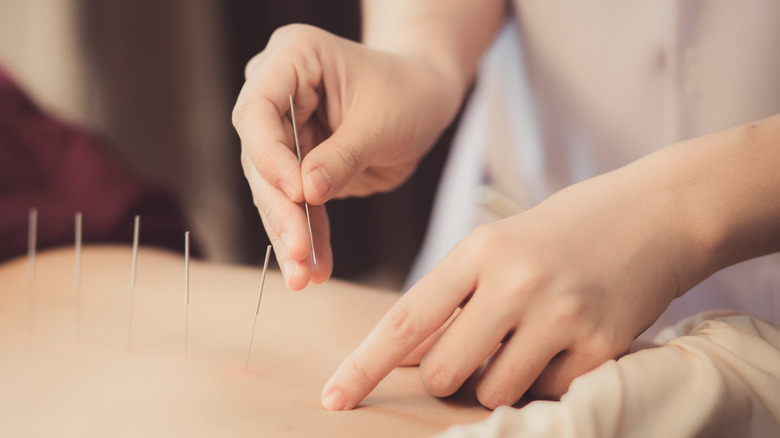The Surprising Technique That May Soothe Your Allergies
If you suffer from allergies, you know seasons of the year have you grabbing an antihistamine or nasal spray. You might even be plagued by indoor allergies such as dust mites, down pillows, or animal hair. In the United States, allergies rank sixth in chronic illness, affecting more than 50 million people every year, according to the American College of Allergy, Asthma, & Immunology.
However, you might be frustrated with treatments. Pseudoephedrine might give you headaches, but you can't avoid the cat at your mother's house. What might be a possible solution? Acupuncture. According to Johns Hopkins Medicine, acupuncture uses tiny needles to stimulate the flow of energy along different pathways throughout the body. The Chinese tradition believes that this activates the central nervous system and sends signals to promote healing in the body. When administered by a qualified professional, acupuncture can be a safe, effective treatment for conditions such as headache, low-back pain, or osteoarthritis (via National Institutes of Health). It can also be used to alleviate allergies, according to Healthline.
What research shows about acupuncture and allergies
Because acupuncture treatment involves individual treatments, research studies about its efficacy on allergies usually involve a small number of participants. For example, a small 2010 study in the European Journal of Allergy and Clinical Immunology had 30 patients with atopic eczema pricked with a grass allergen or household dust mite. Some participants were treated with acupuncture in the correct points, others were treated in sham locations, and others received no treatment. Those treated with appropriate acupuncture had significantly lower itching than the control or sham points. The study found that acupuncture can be used to treat allergies.
Some studies have tested acupuncture against traditional medicine. A 2014 study in the Journal of Allergy compared acupuncture treatment with loratadine medication. Although both groups saw equal relief of their symptoms, the acupuncture group reported continued relief 10 weeks later. In other words, acupuncture might not only be effective, but it can also work a little longer than taking medication.
Other research studies looked at the overall effectiveness of acupuncture on allergies by combining the results of several studies. A 2019 meta-analysis in Evidence-Based Complementary and Alternative Medicine and a 2020 analysis in Chinese Medicine both found that acupuncture was an effective alternative for treating allergies, especially if combined with more traditional therapies.


